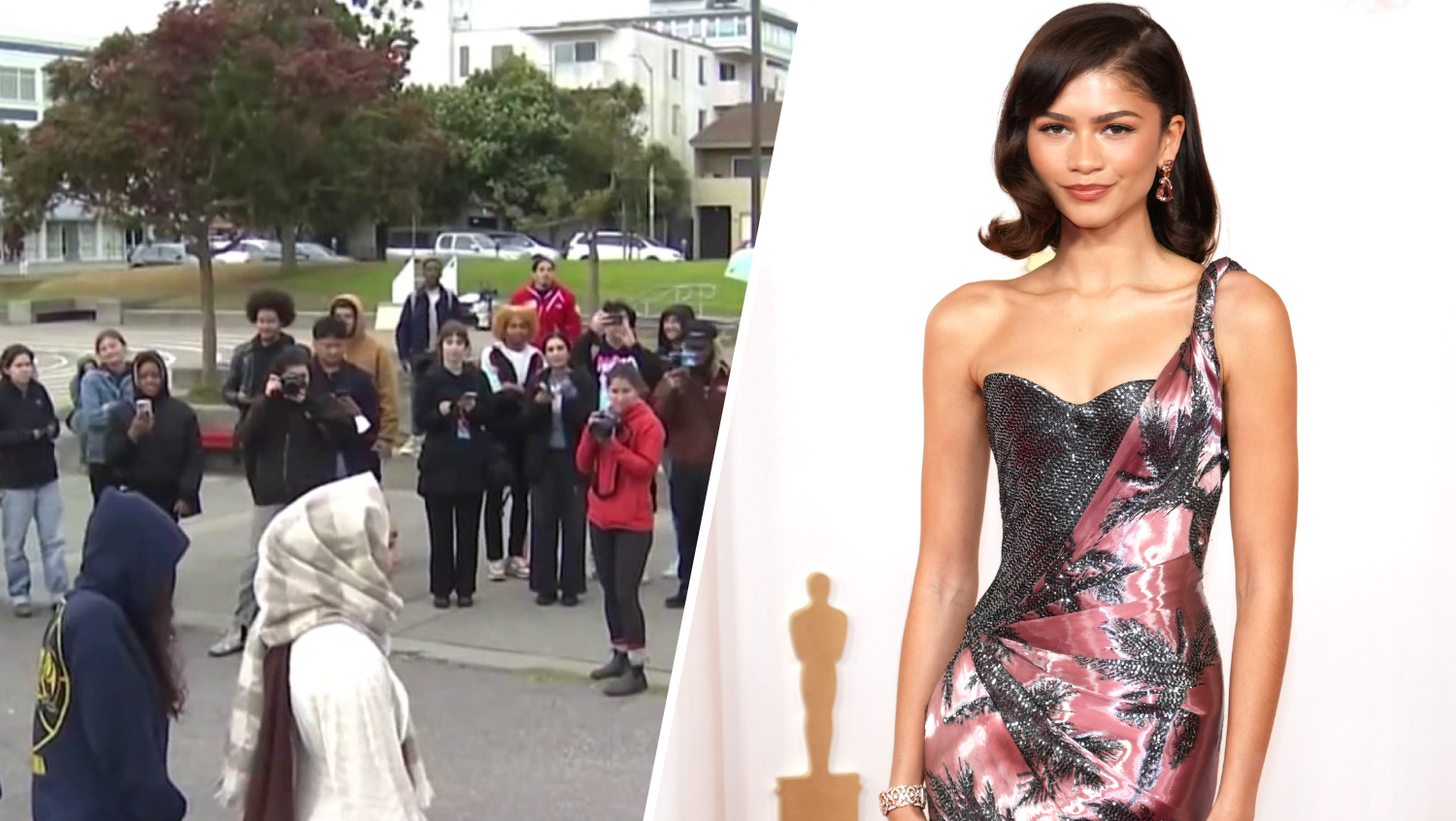Phil Donahue, a journalist and former television host who pioneered the daytime issue-oriented talk show, died Sunday. He was 88 years old.
Donahue's family said in a statement to NBC News that he passed away at home surrounded by his wife of 44 years, Marlo Thomas, his sister, his children, grandchildren and his beloved golden retriever, Charlie.
The statement noted he passed away "peacefully following a long illness."
The host of the self-titled "The Phil Donahue Show" broke ground when it entered national syndication in 1970, tackling controversial topics considered taboo at the time, including abortion, homosexuality, race relations and abuse in the Catholic Church. The program was also the first to include audience participation and became one of the most influential television programs of its time. It helped earn him the moniker the "King of Daytime Talk" and racked up 20 Emmy Awards for the show and for Donahue as host, as well as a Peabody for Donahue in 1980.
We've got the news you need to know to start your day. Sign up for the First & 4Most morning newsletter — delivered to your inbox daily. Sign up here.
Donahue grew up in Cleveland, Ohio, and first hit the airwaves in 1957, doing early morning farm reports at the local NBC affiliate WNDU-TV. He had several television and radio jobs before finding his niche hosting a call-in radio talk show called "The Conversation Piece" in Dayton. The show's success led to the creation of "The Phil Donahue Show."
His first guest was Madalyn Murray O’Hair, a controversial atheist whose lawsuit against mandatory Bible reading in Baltimore public schools led to the Supreme court decision outlawing prayer in public schools.
Entertainment News
The show featured discussions with spiritual leaders, doctors, homemakers, activists and entertainers or politicians who might be passing through town. He said striking upon the show’s winning formula was a happy accident.
“It may have been a full three years before any of us began to understand that our program was something special,” Donahue wrote. “The show’s style had developed not by genius but by necessity. The familiar talk-show heads were not available to us in Dayton, Ohio. ...The result was improvisation.”
With an amiable style and a head of salt-and-pepper hair, Donahue boxed with Muhammed Ali. He played football with Alice Cooper. His guests gave cooking lessons, taught break dancing and, more controversially, described “mansharing,” being a mistress, lesbian motherhood or — with the help of gathered video that got shows banned in certain cities — how natural childbirth, abortion or reverse vasectomies worked.
During the 1992 Presidential campaign, Donahue was credited with expanding the role of daytime television by featuring an unprecedented debate between then-candidates Bill Clinton and Jerry Brown.
A stop on “Donahue” became a must for important politicians, activists, athletes, business leaders and entertainers, from Hubert Humphrey to Ronald Reagan, Gloria Steinem to Anita Bryant, Lee Iacocca to Ray Kroc, John Wayne to Farrah Fawcett.
The format set “The Phil Donahue Show” apart from other interview shows and made it a trendsetter in daytime television, where it was particularly popular with female audiences.
Oprah Winfrey said in a 2010 interview that, "If it weren't for Phil Donahue, there would never have been an Oprah Show."
The show, which ran for 29 years and moved to Chicago before settling in New York, is regarded as the longest-running syndicated talk show in television history. The last episode aired in 1996.
Donahue returned briefly to television in 2002, hosting another “Donahue” show on MSNBC. The station canceled it after six months, citing low ratings.
Outside of his famous talk show, Donahue pursued several other projects.
He partnered with Soviet journalist Vladimir Posner for a groundbreaking television discussion series during the Cold War in the 1980s. The U.S.-Soviet Bridge featured simultaneous broadcasts from the United States and the Soviet Union, where studio audiences could ask questions of one another. Donahue and Posner also co-hosted a weekly issues roundtable, Posner/Donahue, on CNBC in the 1990s.
Donahue also co-directed the 2006 documentary “Body of War,” which was nominated for an Oscar.
Born Phillip John Donahue on Dec. 21, 1935, he was part of a middle-class Irish Catholic family in Cleveland. They moved to Centerville, Ohio, when Donahue was a child, where he lived across the street from Erma Bombeck, the future humorist and syndicated columnist.
Donahue was in the first graduating class of St. Edward High School, a Catholic all-boys preparatory school in Lakewood, in 1953 and graduated from the University of Notre Dame with a degree in business administration in 1957. He later rebelled against, and left, the church, though he poignantly recalled in his book that “a little piece” of his faith would always be with him.
Donahue and his wife, actress Marlo Thomas, had been married since 1980. Donahue had five children, four sons and a daughter, from a previous marriage.
Earlier this year, President Joe Biden awarded Donahue the Presidential Medal of Freedom at a White House ceremony on May 3.



